Creation Mythology in Antiquity: Order out of Chaos
Introduction: Creation Myths in Antiquity
Any cursory study of Egyptian and Sumer-Babylonian creation mythology yielded parallels and similarities, but was much less clear and open to debate was whether or not these similarities, these mythemes as it were, pointed to a common source – whether or not the two cultures “borrowed” from each other, or whether or not there was a collective human psychological force at work along the lines of what Joseph Campbell and Carl Jung might suggest; Campbell with his Hero myth theme that he saw across almost all civilizations across the globe and Jung with his theory of the collective unconscious which he saw evidenced in his psychoanalytic work.
But what about the cosmology of the Greeks, the civilization which perhaps had the closest connection to our modern day culture, at least from a mythological perspective? How did they think the world was created and what did they think about the reason why we were here? What did it say about the meaning of human existence from their perspective if any, and were there any parallels that could be drawn to the stories of the Egyptians if any? His search for cultural borrowing as it related to ancient theology had gotten stuck somehow on the creation myths of the ancients, what had civilizations borrowed from each other? Was there something more significant at work here beyond simple borrowing of myth?
When Charlie was a kid, he remembered reading Greek mythology. He loved the stories. Jason and the Argonauts, the story of Persephone and Hades love for her, the Clash of the Titans, etc. All of these stories were epic, and they fascinated Charlie when he was younger. It tapped into a world of fantasy, just integrated enough and based enough in the world of reality, that it was truly gripping. And the heroes, you just had to love the heroes.
So now he began to look a bit deeper into Greek mythology, particular at their myths of creation, to see how they compared and contrasted with the Egyptian and Sumerian creation myths, and to see how and why this “mythology” transformed into something more scientific – into philosophy and Reason itself.
The Cosmology of the Ancient Greeks: Hesiod’s Theogony
One of the nice things that you found as you studied more advanced civilizations, as you got further into the first millennium BCE, you had better material and source texts to work with. You no longer had to rely on texts and tablets that described ancient rituals for specific temples, or documents or inscriptions associated with royal burial grounds, you actually had books or treatises that were authored and compiled by a single individual that had coherent narratives and compiled and consolidated all the various traditions that might be represented throughout that particular culture.
One of the other nice things as you moved into the study of the civilizations of the Greeks and the Romans is you started to see pretty good one to one representations of their words into the words of modern day English given its more direct relationship to Greek and Latin. Given Charlie’s general avoidance of anything that required memorization or hard work in general, the elegance and purity of the translation was nice, as it made it made the meanings of key words and phrases much less open to interpretation.
The main source for Greek Cosmology or creation myth was the work of Hesiod called Theogony, dated to somewhere between the 8th and 6th centuries BCE. Theogony, or literally “the birth of the gods”, describes the origins and genealogies of the gods of the ancient Greeks, and the term can also be used to describe the origins of gods in any culture. In Hesiod’s account of the creation of the universe, the initial state of the universe is Chaos, or Khaos in the Greek, and from that the universe comes forth.
Verily at the first Chaos came to be, but next wide-bosomed Earth, the ever-sure foundations of all (4) the deathless ones who hold the peaks of snowy Olympus, and dim Tartarus in the depth of the wide-pathed Earth, and Eros (Love), fairest among the deathless gods, who unnerves the limbs and overcomes the mind and wise counsels of all gods and all men within them. From Chaos came forth Erebus and black Night; but of Night were born Aether (5) and Day, whom she conceived and bare from union in love with Erebus. And Earth first bare starry Heaven, equal to herself, to cover her on every side, and to be an ever-sure abiding-place for the blessed gods. And she brought forth long Hills, graceful haunts of the goddess-Nymphs who dwell amongst the glens of the hills. She bare also the fruitless deep with his raging swell, Pontus, without sweet union of love. But afterwards she lay with Heaven and bare deep-swirling Oceanus, Coeus and Crius and Hyperion and Iapetus, Theia and Rhea, Themis and Mnemosyne and gold-crowned Phoebe and lovely Tethys. After them was born Cronos the wily, youngest and most terrible of her children, and he hated his lusty sire.[1]
Chaos was the arche, or underlying origin, of the universe. Arche means ‘beginning’, ‘origin’ or ‘first cause’ and ‘power’ in Greek. It can also denote ‘ultimate underlying substance’ or ‘ultimate indemonstrable principle’ at least as seen in the context of Greek cosmology. Later philosophers such as Aristotle expanded upon the meaning of arche as the element or principle of a thing, which although indemonstrable and intangible in and of itself, provides the conditions of the possibility of the existence of such a thing. In modern times, the term is used by the likes of Carl Jung to describe the underlying psychological themes he found present in individual’s unconscious, symbols and images that he found strikingly similar to primitive mythology. He called them archetypes, the commonality of which across many of his patients he used as the rationalization for the existence of what he called the collective unconscious, the same principle which he and Joseph Campbell to a lesser extent, used as rationale for the commonality of mythical themes across pre-civilized and ancient civilizations. The cultural borrowing of Jung and again to a lesser extent Campbell, lie in the collective unconscious that provided for the ground of the psyche of all humankind.
So here in the work of Hesiod lie some of the semantics of the theo-philosophies that were to follow it, particularly in the work of Aristotle. Arche was a subtle, fairly nuanced concept, but important in the development of Reason and Science, which Aristotle so greatly influenced. In essence it established at some level the building block of abstract thought which was superimposed upon the Greek cosmology myths and then carried forth by later philosophers who sought to break from the mythological tradition. Charlie saw it, saw the germ of something and made a note of to follow up on it.
Back to the Theogony though, you had this Chaos that represented the primordial substance that formed the basis of all creation, a pseudo-anthropomorphic thing, something without gender and without form and yet from which all things came forth from. And from this Chaos emerged Gaia and Tartarus – the Earth and Underworld respectively, the great pillars of the world around us. And then surprisingly, in this tradition Eros, or Love, was a primary force. Leave it to the Greeks to place Love so high in the cosmological order of things.
These characters, these entities, represented the first and foremost parts of creation that sprung forth from the “void”, the first generation of gods for the Greeks. Although the principles or deities themselves were different, there were some parallels to the genealogy of the Egyptians and Mesopotamian story lines albeit the ordering and gods themselves were different for each of the civilizations, perhaps indicative of the different aspects of each of the respective cultures.
Next in Hesiod’s cosmology also from Chaos came Erebus[2], representing darkness or shadow, as well as Nyx, or the Greek’s personification of Night. Erebus and Nyx then reproduced to form Aether, and Hemera (day). Then came Gaia who gave birth to Uranus (sky), and Ourea (mountains) and Pontus (sea). Uranus then fertilized Gaia and from this union the great Titans are born. Charlie could see in this next generation the establishment of the world order, the pieces of the puzzle were laid down as it were, creating the foundations upon which mankind could emerge and flourish.
And then true to form in the quest for power, Cronus was convinced by Gaia to overthrow his father Uranus and claim authority over the gods. He did this successfully (in particularly gruesome fashion as it were) and then wedded his sister Rhea. Rhea and Cronus in turn birthed Hestia, Demeter, Hera, Hades, Poseidon, and Zeus. After a long battle, Zeus ends up taking over Olympus and control over the Greek pantheon from Cronus[3]. This battle of the first generation of gods had a somewhat analogous construct in the Sumer-Babylonian tale, cultural borrowing perhaps or evidence of a tale that came from deeper history that was fashioned and molded to the respective cultures? Every page Charlie turned seemed to yield more questions.
The Creation Story of the Romans: Ovid
What about the Romans? Could anything be gleaned from their cosmology and mythology with respect to borrowing in ancient civilizations? They were closely related to their Greek predecessors from a socio-cultural perspective, this was pretty well accepted in the historical record. For example almost all of the Roman gods had almost direct Greek counterparts – Zeus to Juno, Poseidon to Neptune, Aphrodite to Venus, etc. The Romans were a civilization that clearly borrowed from its predecessors in many respects, their geographic boundaries at their height spreading to the realm of the Persians to the Near East, the Egyptians to the South and of course the Greeks and Macedonians which were their neighbors in the Mediterranean. But what about their creation story? They borrowed many of the myths from the Greeks, incorporated them into their own mythos, but what about the underlying creation story, was it the same?
The cosmology of the Roman/Latin civilization is probably best captured in Ovid’s Metamorphoses, an epic poem authored sometime in the early part of the first century CE in in dactylic hexameter, the same poetic framework as Homer’s Iliad and Odyssey, speaking quite specifically to its Greek roots and heritage. The Metamorphoses contains 15 books and covers over 250 myths, starting with the creation of the world, the first few generations of gods and goddesses and then in turn to the popular mythology (Jason and the Argonauts, the myth of the Minotaur, the story of Daedulus and Icharus, Hercules, etc) and then extending all the way through to the works of Pythagoras into the present day rule of Julius Caesar, connecting the mythological with the historical and political as most other ancient works of its kind. From this perspective the impetus of the work could be seen somewhat in the same light as the Enuma Elis and some of the Egyptian cosmological narratives, establishing the connection of the ruling class, or Roman Emperor in this case, to the reign of the gods and the birth of the universe.
Ovid has his own version of creation though, and although it shares some basic elements of the Greek “orthodox” version from Hesiod, it had some altogether different characteristics, perhaps more Judeo-Christian (Genesis) than Sumer-Babylonian, Egyptian or even Greek in character:
Bk I:1-20 The Primal Chaos
I want to speak about bodies changed into new forms. You, gods, since you are the ones who alter these, and all other things, inspire my attempt, and spin out a continuous thread of words, from the world’s first origins to my own time.
Before there was earth or sea or the sky that covers everything, Nature appeared the same throughout the whole world: what we call chaos: a raw confused mass, nothing but inert matter, badly combined discordant atoms of things, confused in the one place. There was no Titan yet, shining his light on the world, or waxing Phoebe renewing her white horns, or the earth hovering in surrounding air balanced by her own weight, or watery Amphitrite stretching out her arms along the vast shores of the world. Though there was land and sea and air, it was unstable land, unswimmable water, air needing light. Nothing retained its shape, one thing obstructed another, because in the one body, cold fought with heat, moist with dry, soft with hard, and weight with weightless things.
Bk I:21-31 Separation of the elements
This conflict was ended by a god and a greater order of nature, since he split off the earth from the sky, and the sea from the land, and divided the transparent heavens from the dense air. When he had disentangled the elements, and freed them from the obscure mass, he fixed them in separate spaces in harmonious peace. The weightless fire, that forms the heavens, darted upwards to make its home in the furthest heights. Next came air in lightness and place. Earth, heavier than either of these, drew down the largest elements, and was compressed by its own weight. The surrounding water took up the last space and enclosed the solid world.
Bk I:32-51 The earth and sea. The five zones.
When whichever god it was had ordered and divided the mass, and collected it into separate parts, he first gathered the earth into a great ball so that it was uniform on all sides. Then he ordered the seas to spread and rise in waves in the flowing winds and pour around the coasts of the encircled land. He added springs and standing pools and lakes, and contained in shelving banks the widely separated rivers, some of which are swallowed by the earth itself, others of which reach the sea and entering the expanse of open waters beat against coastlines instead of riverbanks. He ordered the plains to extend, the valleys to subside, leaves to hide the trees, stony mountains to rise: and just as the heavens are divided into two zones to the north and two to the south, with a fifth and hotter between them, so the god carefully marked out the enclosed matter with the same number, and described as many regions on the earth. The equatorial zone is too hot to be habitable; the two poles are covered by deep snow; and he placed two regions between and gave them a temperate climate mixing heat and cold.
Bk I:52-68 The four winds
Air overhangs them, heavier than fire by as much as water’s weight is lighter than earth. There he ordered the clouds and vapours to exist, and thunder to shake the minds of human beings, and winds that create lightning-bolts and flashes.
The world’s maker did not allow these, either, to possess the air indiscriminately; as it is they are scarcely prevented from tearing the world apart, each with its blasts steering a separate course: like the discord between brothers. Eurus, the east wind, drew back to the realms of Aurora, to Nabatea, Persia, and the heights under the morning light: Evening, and the coasts that cool in the setting sun, are close to Zephyrus, the west wind. Chill Boreas, the north wind, seized Scythia and the seven stars of the Plough: while the south wind, Auster, drenches the lands opposite with incessant clouds and rain. Above these he placed the transparent, weightless heavens free of the dross of earth.
Bk I:68-88 Humankind
He had barely separated out everything within fixed limits when the constellations that had been hidden for a long time in dark fog began to blaze out throughout the whole sky. And so that no region might lack its own animate beings, the stars and the forms of gods occupied the floor of heaven, the sea gave a home to the shining fish, earth took the wild animals, and the light air flying things.
As yet there was no animal capable of higher thought that could be ruler of all the rest. Then Humankind was born. Either the creator god, source of a better world, seeded it from the divine, or the newborn earth just drawn from the highest heavens still contained fragments related to the skies, so that Prometheus, blending them with streams of rain, moulded them into an image of the all-controlling gods. While other animals look downwards at the ground, he gave human beings an upturned aspect, commanding them to look towards the skies, and, upright, raise their face to the stars. So the earth, that had been, a moment ago, uncarved and imageless, changed and assumed the unknown shapes of human beings.[4]
Certainly the notion of order out of Chaos can be found, along with the watery abyss nature of the universe before the realm of the gods or the basic components of the habitable universe were created. The emphasis after this initial substratum of the world was created shifted from the generations of gods and their ensuing conflict and quest for dominance to the creation of the basic elements – earth, air, fire and water – displaying more of a Greek philosophical bent in this regard than the cosmologies of prior civilizations. Then comes the emphasis of the creation of mankind, in the likeness of the gods and having dominion over the earth, themes that come to dominate the creation stories in the Old Testament no doubt.
Creation Mythology in Antiquity: A Comparative Perspective
As Charlie stopped to reflect about this creation mythology, these stories that clearly reached back at some level or another into the pre-civilization times of the societies within which they emerged, there were clearly some similarities. They all seemed to share this common theme of the world emerging from a watery chaos, and then from this cosmic soup as it were, the basic elements or components of the universe – the earth, sky, oceans, stars, etc – emerges, providing the foundations upon which mankind and civilization itself could spring forth and flourish. But there were a subtle differences in these traditions despite their similarities.
The Greek tradition for example was unique in that a) Eros, or the creative principle, was one of the key gods emerged first out of the underlying chaos, and b) there was no political motive or establishment of authority that was implicit in the mythology. This was a distinct characteristic of the Greeks in general and Charlie would dig deeper into this theme as he looked into the philosophical contributions of the Greeks.
In the Egyptian, Sumer-Babylonian, and even Roman traditions, there clearly existed reference points and patterns of the use of mythology to establish a clear line of authority to the existing rulers, and in the Enuma Elis as well as the Theogony you saw the generation of gods clearly delineated out of chaos and the ensuing conflict to establish power, this was absent from the Roman and Egyptian themes.
Outside of the fact that it was not clear what if any cultural borrowing occurred between these geographically and culturally connected societies, what intrigued Charlie was with the Greeks, the society more so than any other that contributed toward the birth of Reason, was this subtle yet important pivot away from political motive or authority to their cosmological narrative. Their philosophical tradition seemed to originate from, or perhaps better put was liberated from, this emphasis on authority and power.
For the Greeks were the first to establish the supremacy of reason and logic and in turn verifiable truth over mythology, or what you could loosely term theology to the ancients. This subtle distinction, this separation of church and state so to speak, turned out to be the most important break from earlier traditions as it turned out, for it was this separation of mythological tradition from politics or royalty, attributing the mythological account to divine inspiration as it were, that laid the foundation for the creation of philosophical traditions that formed the basis of reason and science.
Much of the mythology of these ancient peoples, the rituals and the priesthood, was intended to bifurcate society into those that knew god, and those that didn’t. And this established order or authority of the one class of people over the other. Even with the Greeks, the priesthoods had power and represented established authority to some extent, although with the advent of their democracy, which to some extent grew hand in hand with their philosophy and the evolution of their world view, they moved away from this old guard of authority which had its source in the priesthood and worship of the gods.
Most certainly with the Sumer-Babylonians and the Egyptians this connection was there as the leadership relied on the authority of these priests to maintain their power. And it was the people’s belief in the existence of the gods, and the priests’ direct communion or connection with these deities that established the natural order of things and established the stratification of society of those who held power and those that did not.
Charlie thought you could extend this use of religion to establish authority to many of the societies of modern day as well, this very powerful tool was not limited to the ancient civilizations. Christianity over the years, the Church specifically, used the same methods to establish their authority and power over people. Many of the societies of the Middle East today also have their religion and government mixed together, the one establishing the authority of the other. And of course this can create problems as clearly many untoward things can, and have, been done in the name of religion to protect the established authority. Hence the beauty and elegance of the American Democracy which legally separates Church and State as a founding principle, establishing the supremacy of merit and will of the people over religious authority and dogma.
But this separation of Church and State, which was a necessary step for the birth and faith in Reason and Science as the only harbinger of truth, had to come from somewhere. It was a revolutionary concept and it has its origins at some level with the Greeks, as reflected in the Hesiod’s Theogony. From this core separation emerged the idea that Truth could only be established by Reason, empirical study, and in turn science, or more accurately put knowledge itself. This was clearly a radical notion, rebellious in nature and did not evolve without conflict.
Charlie thought you could see this friction which drove the break between religion for authority’s sake and that for personal liberation, liberation based upon reason and the individual mind, in the life of Jesus some centuries after the advent of Greek civilization. What we do know about his teachings is that he taught that “you and the Father are one”, that you can commune directly with the divine without having to go through the established authority of the priesthood, upon which the authority of government rested and relied. Christ’s contribution to modern thought should be looked at from this viewpoint, Charlie believed. Christ was a radical thinker, he taught that God was our very own, and that he lived within us, and before us, and we did not need a gatekeeper to have his company or take refuge in him. Christ was in fact the first rebel, the first radical who proffered the notion that our salvation rests in our own hands, and we were not to be judged by our alignment with the thinking and practices of authority, whose primary goal was to remain in power and reinforce the structure of established authority.
But at the same time Charlie could see the parallels between the three traditions and the emergence of order from chaos that was clearly reflected in each of the respective cosmologies. All of these cultures felts compelled to answer these basic questions – who are we and from whence we came. The emergence from chaos out of the watery abyss, and the establishment of the underlying order of the cosmos which provided for the ground of humanity, was a shared construct for all of these ancient peoples. There was chaos, and from this chaos emerged order.
There was also the common theme of deities that existed as basic principles which drove the creation of the cosmos and its contents. Gods that were human, albeit immortal. These gods were different for each of the ancient civilizations, and they were created in different orders and had different relationships with each other, no doubt reflecting the different underlying importance of the principles which they represented for each of the respective societies. But these deities were a key part of the establishment of the world order nonetheless. Or perhaps better put mankind was made in the likeness of these deities, albeit mortal.
There was no doubt that each of these ancient civilizations had an inherent need or desire to understand how order and in turn humans themselves emerged from nothingness, or the eternal void. Clearly all of these ancient civilizations had a yearning to understand or formulate some sort of coherent story line that explained how the world was born and how mankind came to be, and each of these ancient civilizations shared many of the same ideas, or pieces of the same story line, as to how things came about. Was this cultural borrowing? Was it Jung’s collective unconscious at work, i.e. that each of the cosmologies was born independently out of the collective psyche of its people? Interesting questions, or so Charlie thought but still no real definitive answers to guide his thesis unfortunately, more work was needed and worse yet he seemed to be straying away from this idea of cultural borrowing to more broad themes about the nature of reason and faith…
[1] http://www.sacred-texts.com/cla/hesiod/theogony.htm (ll. 116-138).
[2] Erebus , or Erebos, is translated into English roughly as “deep darkness, or shadow”. Erebus is also referred to as a region of the Underworld where the dead had to pass immediately after dying, and is sometimes used interchangeably with Tartarus.
[3] There is an alternate creation stemming from the tradition of the great poet Orpheus but this mythological tradition does not deal as specifically with the origin of the universe as Hesiod’s account. In Orphic cosmogony Cronus produces Aether and Chaos and made a silvery egg in divine Aether from which appeared the bisexual god Phanes, identified by the Orphics as Eros, who becomes the creator of the world.
[4] Metamorphoses Book I (A. S. Kline‘s Version). http://ovid.lib.virginia.edu/trans/Metamorph.htm

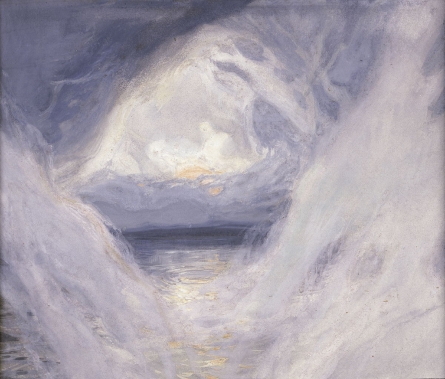
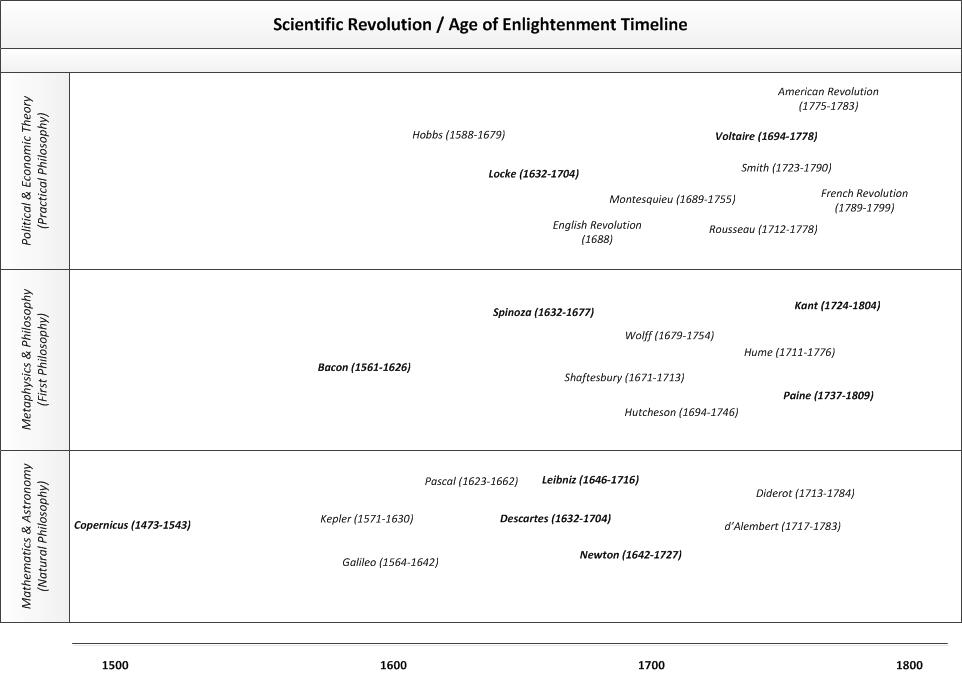
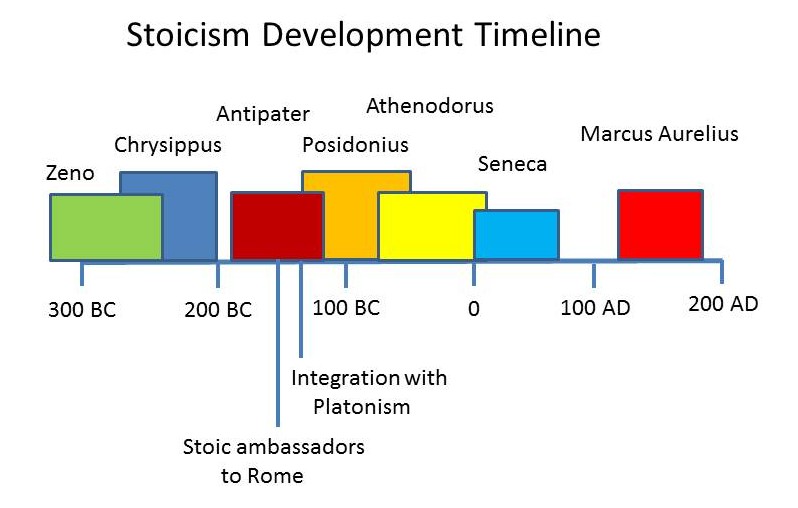
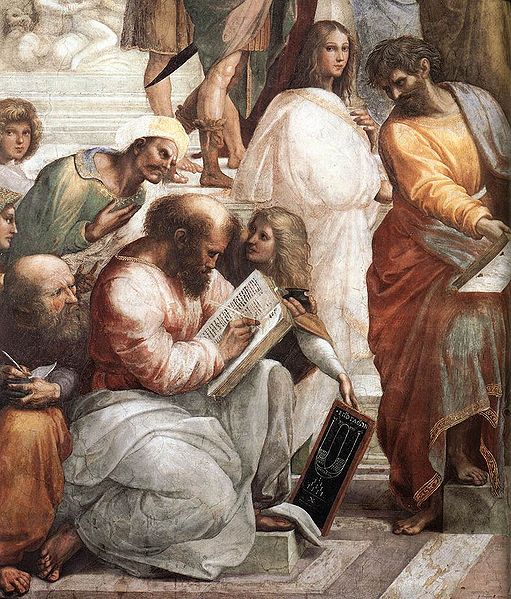
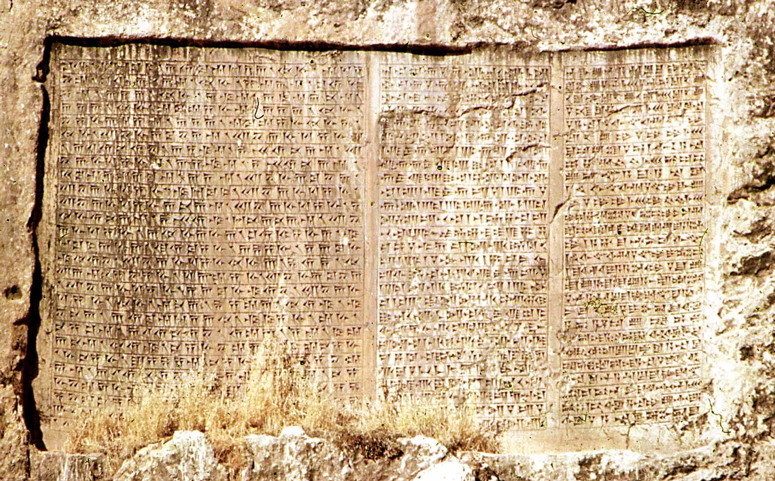
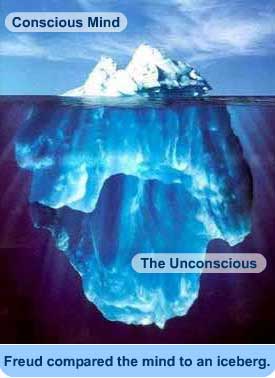
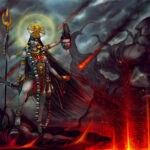
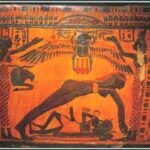
Fascinating stuff. You are dead right about JC. Also, I had no idea that Ovid knew both poles were covered in ice.
I’m very interested in similar issues… I like to think that different cultures might be like the blind men describing the elephant. Jewish mystics from the 10th century and Buddhists from 3rd bce describe god the same way –something so bright as to cause the viewer to look only at its reflection (why the first Buddha image, according to contemporaneous accounts, was carved in sandalwood so as to give indication of an image as seen on the water).
It is also interesting to look at the 2nd century bce Chinese tomb at Mahwangdui (particularly the silk T shaped banner covering outer sarcophagus of the mummified princess.) It shows a theology that has many parallels with Egyptian creation mythology, ie. that the earth rose from the water, soul and body, afterlife judgement process.
We know that trade across the Silk Road brought Chinese silk to Rome and Roman wine to the coasts of India… I think ideas including religious ones travel with trade.
In any event look forward to the next post!
Check out “Origins of the Worlds Mythologies” by EJ Michael Witzel, a Sanskrit scholar who has been studying ancient mythology and ritual for some 20 years. He theorizes that perhaps ancient mythologies evolved in the same way ancient languages evolved, their commonality in narrative and various shared motifs stemming from a common myth system that he traces out of Africa some 40,000 yrs ago, aligning the theory with the latest in genetic research which maps human populations out of Africa along the same timeline. Very interesting to say the least, and contradicts Campbell and Jung’s prior work on the topic in a manner that’s hard to ignore. Not a bad read if you’re into ancient history and mythology.
Thank you for your ample gift following the wonderful ideas shared on this page.
I am a college professor and I came across result-oriented things as I went over your article.
The school sshall soon be organizing a convwntion for the students and I would love
you to share more ideas, maybe thyrough a video, with the students about this topic.
Of course, I most certainly will get in touch with you as soon as the time comes.
I’m really happy to learn that some experts with this topic have a web page like yours exctly where people
can get more information. Wonderful post.
Thougts cannolt express the particular gratitude we feel. The generosity will
be remembered aall the time. Thank you.
Spot on with this write-up, I seriously believe this site needs a lot more attention. I’ll
probably be returning to read through more, thanks for
the advice!
Wow that was strange. I just wrote an really long comment but after
I clicked submit my comment didn’t appear. Grrrr…
well I’m not writing all that over again. Anyways, just wanted
to say superb blog!
This is one among by far and away my personal favorite post.
It’s difficult to find educated people on this topic, but you seem
like you know what you’re talking about! Thanks
I have just found your site and am delighted and look forward to many reads – I am researching ancient Irish mythology to unearth the cosmology that is buried inside the texts and linking this to some of the Native American concepts…as we are all so heavily influenced by the modern christian tradition I find your knowledge and writing SO interesting. Thank you!
Thank you. Glad you are enjoying it.
Regards
JV